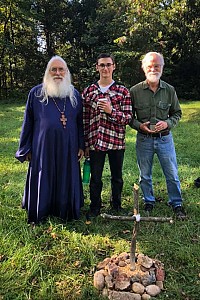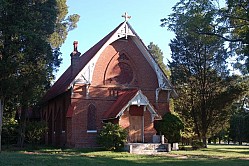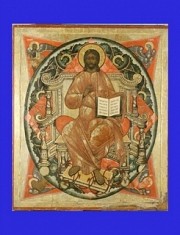Dear Brothers and Sisters in Christ,
The start of a new Church year is a chance to ask God to increase our piety. What does it mean to say this? It means to make our faith active. It means bowing in reverence and making the sign of the Cross. It means saying our daily prayers. It means venerating icons. It means observing the Church feasts and fasts. It means mindfully attending the services of the Church. It means participating in the holy mysteries of Repentance, Confession and Communion. It means regular reading of Holy Scripture. It means acting charitably and compassionately toward others. In short, it means living life in such a way as to come to ever-present awareness of God.
It is through normal Orthodox Christian piety that we spiritually develop within the Body of Christ. Remember that the first commandment is to love God with all our heart, soul, mind and strength. Acts of Christian piety are the established ways to both love God and to show that we love God. These acts of love for God have been established through immemorial usage within the Church in response to God’s love for His people, the Church.
Some complain that the active Christian Faith contains so many rules. One may as well complain about the number of elements in the periodic table, or about the number of stars in the sky. Human life as lived is surely at least as multi-layered as any other complex phenomenon. We see, we smell, we hear, we taste, we touch, and we act on the information provided, but we don’t experience the complexity of ourselves as complex. Our organism is so set up that our functioning is fluid without any sense of the connections or steps.
The pattern of the pious life parallels this complexity. To many of our acts we add pointed awareness of God. We wake up; we pray. We eat; we bless the food first. We go to sleep; we make the sign of the Cross first over our bed. To resent the numerous actions of Christian piety shows a desire for a minimalist approach to the spiritual life, one that doesn’t require our attention or allows us to forget God sometimes, especially if such remembrance is not compatible with what we may want to do. We should question a pattern of activity that allows us to forget God, rather than question the pattern of activity that does not. Once we have woven this pious pattern of action into our life, we find that it becomes as natural as all the other “add-ons” that we no longer think about, like bathing and brushing our teeth. The pious life can become as functionally fluid as our natural life. Like the other “add-ons” though, we have to keep at it, through regular practice.
Some complain that establishing a pious pattern of actions quashes spontaneity in our response to God. The opposite is true. By conditioning ourselves through Christian piety, we cultivate the spiritual ground upon which it will occur to us to respond to God at all. And, through Christian piety, we are protected from the “spontaneous” influences that would draw us away from Him.
Some complain that things are done differently at different places. Since no one is in more than one parish at a time for most of the time, in humility and charity, we take up the practices observed where we are. It has been my experience, among Russian parishes at least, that there are no differences to speak of in the practice of personal piety.
It is most important for us, especially in this overwhelmingly corrupt modern society, to acquire the spiritual armor that is built up by traditional Orthodox Christian pious practice, so that we can escape the evils set out to trap us. Traditional Orthodox Christian piety is the means provided for us by the Lord our Deliverer to help us work out our salvation. Let us not neglect it.
Father George
DOUBLE YOUR CONTRIBUTION
THROUGH OUR MATCHING GRANT!
Now through Palm Sunday, April 28,
Matching every dollar, up to $38,000!
Help us build our new Parish Hall,
and move to our historic Chapel Campus!
(Want to contribute to our General Fund?
Please scroll down ~ Thank you!)
From 'St John of Shanghai and San Francisco, Zealous Builder of Churches'
Everywhere he went he either oversaw the building of churches or supported the same with his attention and prayers... He wrote about the godly work of building churches:
"In building churches here on earth, we create for ourselves eternal habitations in heaven."
ALL DONATIONS TO OUR
BUILDING FUND
Are DOUBLED, up to $38,000
Now through Palm Sunday, April 28




